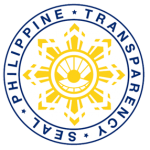South Cotabato dairy farmers undergo social prep training
Dairy farmer-trustees of two South Cotabato-based associations underwent social preparation training (SPT) on May 19-22 to further strengthen their readiness and capacity for engagement in their respective groups. The training, which was requested by the Center Director Benjamin John Basilio of Philippine Carabao Center at University of Southern Mindanao (PCC at USM), is a […]
Dairying helps in increasing farm income, reducing rural poverty – Sen. Villar
The dairy industry plays an important role in the agricultural sector in its quest for food security and self-sufficiency as well as securing stability and improved quality life for the Filipino people. This was emphasized by Senator Cynthia A. Villar, chairperson of the Senate Committee on Agriculture and Food, in her keynote address during […]
“Super Napier” seen to boost local dairy production
A new hybrid “Super Napier” developed and produced in Thailand took center stage during a technical seminar held on May 6 at the national headquarters of the Philippine Carabao Center (PCC) in the Science City of Munoz, Nueva Ecija. Known as “Pakchong 1”, the Super Napier was developed by Dr. Krailas Kiyothong of Thailand’s […]











